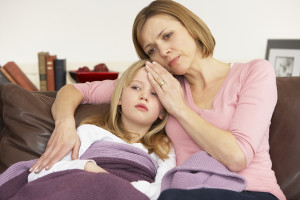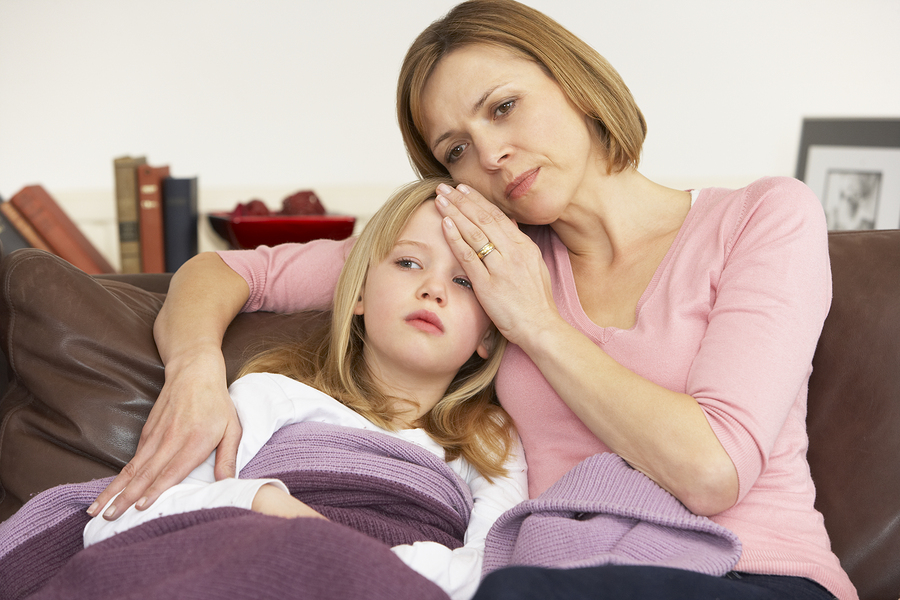When to Keep Your Child Home from School
 If you have school-age children, you’ve probably faced this common dilemma: Your child wakes up coughing and sniffling and generally miserable, but you’re not sure whether these symptoms are enough to justify keeping him or her home from school. After all, kids catch colds frequently, and consistent school attendance is important for learning and good grades. However, when a child isn’t feeling well, he or she will probably struggle to get anything out of the school day, and can also risk spreading illness to other children in the classroom. Plus, the last thing you want is to receive a phone call from the school informing you that you need to come and pick up your child.
If you have school-age children, you’ve probably faced this common dilemma: Your child wakes up coughing and sniffling and generally miserable, but you’re not sure whether these symptoms are enough to justify keeping him or her home from school. After all, kids catch colds frequently, and consistent school attendance is important for learning and good grades. However, when a child isn’t feeling well, he or she will probably struggle to get anything out of the school day, and can also risk spreading illness to other children in the classroom. Plus, the last thing you want is to receive a phone call from the school informing you that you need to come and pick up your child.
The Centers for Disease Control recommend that children with flu-like symptoms should remain at home for at least 24 hours after the associated fever subsides without the use of fever-reducing medication. Additionally, the following conditions warrant keeping your child at home to rest:
- Excessive coughing – Coughing can easily spread germs. Also, if your child didn’t sleep well due to incessant coughing the night before, he or she will likely be too tired to concentrate in school during the day.
- Vomiting more than once – Vomiting is a dramatic event, but a single episode can be brought on by a number of things, such as nervousness or rough-housing, which are unrelated to illness and not a necessarily cause for alarm.
- Diarrhea – Loose stools can be a sign of a virus, so a child with diarrhea should stay at home and drink plenty of water. Blood or mucus in diarrhea can be indicative of a bacterial infection, and thus necessitate a trip to the doctor.
- Rash – A spreading rash can be contagious, so your child should be cleared by a physician before returning to school.
- Fever – Even in the absence of other symptoms, an elevated temperature can be a sign of infection.
On the other hand, a non-lethargic child with a simple case of the “sniffles” or a mild sore throat can probably head to school. Just be sure that he or she is aware of the importance of – and practices – good hygiene habits. These include thorough hand-washing, using disposable tissues, and coughing into his or her sleeve.
If you have questions about this or any other health-related topic, or if your child needs to see a doctor, please contact or visit South Tampa Immediate Care. Our walk-in clinic is conveniently located on South Howard Avenue in Tampa, FL.













